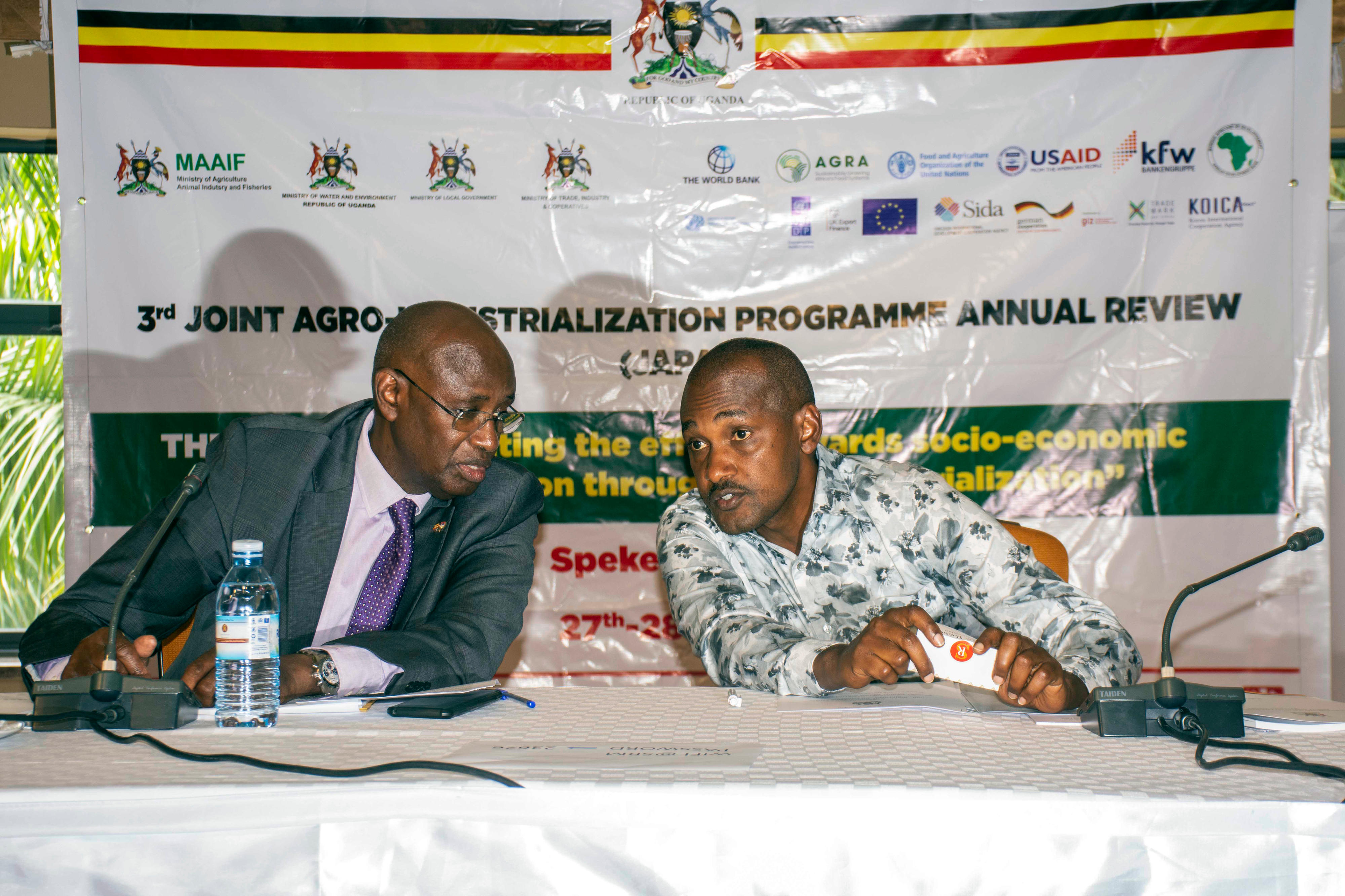Prime
Comply with international standards to increase meat exports

The Commissioner In Charge of Animal Health at MAAIF Ms. Anna Rose Ademun chats with the head Livestock and Fisheries at IGAD ICPALD Mr Ameha Sebsibe in Entebbe on July 9, 2024. Photo/Paul Adude
What you need to know:
- Authorities say the compliance would increase Africa's meat and livestock exports.
The commissioner in charge of animal health at the Ministry of Agriculture, Animal Industry and Fisheries (MAAIF), Anna Rose Ademun, has emphasized the need for Inter-Governmental Authority on Development (IGAD) member countries to comply with the World Organisation for Animal Health (OIE) and World Trade Organization (WTO) standards.
This compliance would increase meat and livestock exports to the Middle East and North Africa (MENA) region, according to Ademun.
Speaking at the opening of the 7th Inter-regional Regulatory Bodies Chief Veterinary Officers meeting of IGAD exporting and MENA importing countries in Entebbe on Tuesday, Ademun noted that traders would easily access global markets, leading to an increase in the volume of live livestock and meat exports.
"The demand is very high, but what is required is for the exporting countries to meet the standards," she said.
Ademun stressed that chief veterinary officers of both exporting and importing countries must inform businesspeople of the required standards to follow.
"When businesspeople meet, they are excited about the various types of livestock and meat the region has to offer. Uganda alone has 14.5 million cattle, 17.4 million goats, 4.4 million sheep, 6 million pigs, and 57 million poultry. However, as veterinary officers, we are custodians of quality and are supposed to help our exporters," she said.
Head of IGAD mission in Uganda, Joselyn Bigirwa, said IGAD states have been working to improve animal disease surveillance, vaccination, and disease control to improve compliance with sanitary requirements and Halal standards.
"Although the region has a comparative advantage, the current export volume covers only 50% of live animals and 10% of meat annual demand in MENA, which is low," she noted.
Bigirwa added that IGAD governments and traders are looking forward to collaborating to increase their market share in MENA countries and fully utilize their potential.
The head of livestock and fisheries at the IGAD Center for Pastoral Areas and Livestock Development (ICPALD), Ameha Sebsibe, noted that compliance with requirements will increase exports, addressing the current gaps in live animals and meat in the MENA market.
"Improved compliance will promote more exportation of meat and live animals by IGAD countries, attracting better prices for meat on the market," he added.
The Food and Agriculture Organisation (FAO) Sub-regional Office for Eastern Africa Livestock Development Officer, Ricarda Mondry emphasized that compliance will help IGAD states deal with the severe impact on their economies whenever trade in livestock and meat is stopped due to travel restrictions and livestock diseases.




